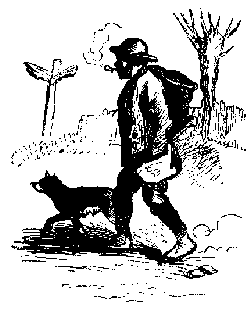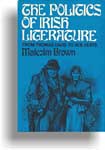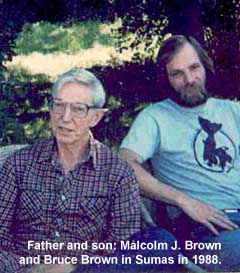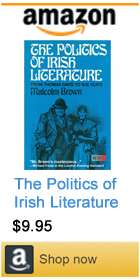Chapter Nineteen
After Kilmainham: Davitt and Standish O'Grady Take Stock
THE ESSENCE of Parnell's reply to Forster was that the Phoenix Park affair was not an issue of substance for Irishmen-a correct tactical position. And yet he was himself suddenly apprehensive of terror, and even militance. When he turned to carry out his own Kilmainham promise to calm down the land agitation, his fear of the irrepressibles reinforced his habitual scrupulousness in honoring a commitment. Davitt's first question on being told of the new Kilmainham line was, what did Parnell propose to do with the other family enterprise, the Ladies' Land League? He touched a tender spot. Toward his agrarian sisters Parnell felt no chivalry and no gratitude, negative attitudes he shared with others, Cardinal MacCabe for one, and also Mrs. O'Shea, who considered their actions "crass folly" and "criminality" and applauded her influential good friend's displeasure with "this wild army of mercenaries" and "fanatics."' Parnell's answer to Davitt's question was: "I fear they have done much harm" and "they have expended an enormous sum of money." He added that "they" -- presumably his sistershad told him that Ireland would have been better off if he had stayed in Kilmainham.
In Parnell's irritation can be seen the birth of the theme of the frenzied Irish amazon, of whom the Maud Gonne of Yeats's verse is the most resplendent and indefatigable example. The parentage was explicitly acknowledged by some of the more insistent voices of the myth. St. John Ervine, Belfast's unique contribution to Yeats's Irish literary movement, enthusiastically seconded Mrs. O'Shea's critique: the fanaticism of Irish women was "almost inhuman."' Liam O'Flaherty, too, felt drawn to sympathy with Parnell's aversion against his female auxiliary: "There was a women's organization called the Ladies's Land League, which did as much harm by thoughtless statements and actions as the organizations of political women among us in Ireland nowadays" -- a reference to Mesdames MacBride, Markiewicz, and MacSwiney. On this particular theme he wrote a novel, The Martyr. It was not one of his best; like some other Irish literary historicisms, this one is not weather-tight. Listening to Parnell's attack, Davitt remembered that it was the ladies after all who had finally toppled Forster, and he replied, "It appears to me that they have given good value for the money which was contributed to give the landlords and the Castle all possible trouble." However that might be, Parnell silenced the ladies' agrarianism without ado simply by cutting off their money. His habit of diplomacy was missing from the transaction, and his sisters never spoke to him again.
The Land League itself was the next to go. Davitt, Brennan, and Dillon were summoned to Avondale for discussions in September 1882, immediately after House passage of the twin bill for Ireland, the coercive Crimes Act and the conciliatory Arrears Act. The meeting was tense, for the Kilmainham treaty was not working well. Great numbers of peasants were barred from benefits under the new reform and were threatened with eviction. And as soon as the new Crimes Act became law, evictions began once again to soar. The league militants went out to Avondale to argue that Parnell had betrayed the neediest strata of the peasantry and written them off for extermination. They urged that the old Land League be reactivated and the land war reopened with the full vigor of November-December 1880.
By standing pat on the Kilmainham treaty, Parnell opened up the familiar vista of the Irish schism. Schism did not occur, though. The one was victorious over the three, but not, as John Butler Yeats thought, by the exercise of hauteur and insolence. Parnell never "governed with the iron hand," said Davitt. "No leader was ever more indulgent in the exercise of power or interfered less with his followers or gave a wider field for discussion or criticism. . . ." Still, he did prevail; which is to say that the other three, who had it in their power to tear the movement apart if they chose, chose not to. They submitted, and so it was that an agreement to bury the land agitation, "the Avondale treaty," was reached. A new political mass organization was announced, to be called the "National League," cleansed of the offensive word "Land." Its platform was, first of all, Home Rule; incidentally it also advocated "land reform" and the stimulation of Irish industry. By a revision of the old Land League constitution, the moderate Irish M.P.'s assumed the dominant voice in its affairs; and in 1884 local priests were co-opted into every branch as ex officio members. Soon the organization that two years earlier was the de facto government of rural Ireland had mutated into an O'Connellite vote-getting machine for the Irish parliamentary party. It welcomed the old land-war generals to membership, if they cared to come along, but most of them quietly drifted away. Dillon went to Colorado for his lungs; Egan settled down in Lincoln, Nebraska; Davitt accepted a place on the new board, and even journeyed to the United States to pacify the discontented Irish-American sponsors. But he remained critical, with Lancashire gradually replacing Ireland at the center of his thought and effort.
To defend himself against the charge of premature demobilization, Parnell argued that the land-war resurgence was now an exhausted force. He believed that it would be a foolish general who would overextend his pursuit without pause to catch breath. He believed that he had already achieved, in Yeatsian language, "of all things not impossible, the most difficult." Reversing Lalor's 1848 program, he proposed to kennel the wolf dog, or to alter the metaphor, to unhitch the economic issue from the political, to sidetrack agrarianism and to highball down the line with Home Rule. He believed that the great mass of his Irish followers approved his decision "I believe that the Irish People have very moderate ideas as to the improvement of their condition. . . ." He thought that men like Davitt, Dillon, and Egan who would push on with the land war regardless would soon find that they had no followers at their backs, and his order of the day was above all else to strengthen the Irish parliamentary party...
|
|
Table of Contents
|

|
Astonisher.com is pleased to offer these excerpts from The Politics of Irish Literature by Malcolm Brown...
Praise for
The Politics of Irish Literature |
 |
|
"This brilliant study of the intersection of politics and literature in Ireland amounts to a dazzling portrait gallery. Reading it one feels about one the breath, warmth, and passions of the dead all come alive again."
-- Sean O'Faolain in the Manchester Guardian
"Mr. Brown's masterpiece has made me want to hire a nearby housetop and recite whole chunks to every passerby..."
-- Michael Foote in the London Evening Standard
"The author of the best book on George Moore now gives us what is in all likelihood the best book on the politics of modern Irish literature."
-- Virginia Quarterly Review
|
|

University of Washington Professor Malcolm J. Brown (1910 - 1992) with his son, Bruce Brown, in Sumas, WA, July 1988.
|
Additional reading -- Malcolm Brown's George Moore: A Reconsideration. Also see Bruce Brown's commentary on The History of the Corporation for Malcolm Brown's contribution to that work.
|
|
|






